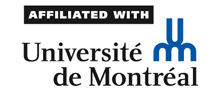By Annika Fredén (Lund University)
Elina Lindgren (University of Gothenburg)
Patrik Öhberg (University of Gothenburg)
What is the story?
On December 3, two months after the national election, the Swedish Prime Minister Stefan Löfven called a snap election. This is an unprecedented phenomenon in a country that is considered by many as a political stability heaven. The last snap election was held in 1958. This long period of political stability was due to the Swedish political culture favouring compromises over conflicts, and based on the good will of the political parties represented in the national parliament.
The newly elected minority government, a coalition between the Social Democrats and the Greens, was not able to get its budget through parliament, and the Centre-right opposition’s budget received more votes. The government then decided to hold a snap election on March 22, 2015. In this post, we explain the causes of this budget’s crisis.
A new actor: the Swedish Democrats
The Swedish Democratic party is a relatively new party on the Swedish political scene. Although it was founded in 1988, the party only received its first seats in the national parliament in 2010. At last September election, it doubled its representation, from 20 to 49 out of 349 seats, and became the third bigger party of the country.
The new formation is a populist party, which main goal is to cut immigration. Since it has a controversial history and used to be close to several neo-Nazi organisations, the Swedish political class refuses to include it in talks and negotiations. The Swedish Democrats are neither part of the Centre-right opposition coalition, nor of the governing Red/Green coalition. Breaking with the Swedish culture of compromises and political good will, the party voted in favour of the opposition’s budget. The common practice was that parties that are not part of any coalition abstain to vote on the budget, which has the effect of allowing the adoption of budget of the government.
The Swedish Democrats’ decision to support the opposition’s budget was strategic. Sweden being one of the most liberal countries in this respect among OECD countries, they argued that they could never support a budget that is too generous regarding immigration. They explicitly targeted the Green party, and made it responsible for this generosity. However, the opposition’s budget proposal does not differ in any substantive sense regarding immigration. As the Swedish Democrats are isolated in the political system, their decision to block the government’s budget was motivated by a willingness to shake up the country’s current policy in the domain.
A strategic move of the Prime Minister
The Prime Minister and leader of the Social Democratic party Stefan Löfven surprised many experts in calling a snap election. This decision was probably also driven by strategic considerations. In taking it, he might indeed expect to remain in office, and even to increase his coalition’s parliamentary seat share.
The opinion polls conducted just a few days after his announcement showed that the prospects for the three biggest parties, the Moderate party (i.e. the senior partner of the opposition centre-right coalition), the Social Democratic party, and the Swedish Democrats, are really good (see Table 1 below). Most of the citizens who voted for these parties last September said that they would remain loyal to their respective party next March (80%). This is much bigger than the proportion of loyal voters among other parties’ supporters (50%-75%), in particular, the newly formed Feminist Initiative, which failed to reach the 4% electoral threshold (43%). On the consequence of this threshold and on the Feminist Initiative’s failure, see this previous blog post.
| Party | Proportion of ‘loyal voters’ |
| Social Democrats | 84% |
| Sweden Democrats | 83% |
| Moderate Party | 78% |
| Centre Party | 75% |
| Left Party | 74% |
| Green Party | 72% |
| People’s Party Liberals | 65% |
| Christian Democrats | 53% |
| Feminist Initiative | 43% |
However, all these prospects are rather uncertain as we are only at the beginning of this new campaign, which started only a few months after the last one ended. Besides, given the unprecedented nature of this crisis, the new election could also be an opportunity for new ideas and candidates to take a step forward.
